| 8:00am |
Breakfast & Registration
|
| 8:00-9:00am |
Design Challenge Pitchfest
|
| 9:00-9:05am |
- Welcome to WOHESC 2020
- Steve Mital | Director, Office of Sustainability, University of Oregon
|
| 9:05-9:10am |
- Land Acknowledgement
- Beyond territorial acknowledgments
- Acknowledgement guide
|
9:10-9:25am
 |
- Opening Keynote
- Introduction: Chris Linkous | Field Sales Manager, Greenworks Tools
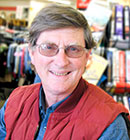 Terry McDonald | Executive Director, St. Vincent DePaul Society of Lane County Terry McDonald | Executive Director, St. Vincent DePaul Society of Lane County 
|
9:30-10:30am
 |
-
- Introduction: Michael Colgrove | Executive Director, Energy Trust of Oregon
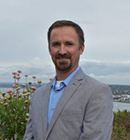 Moderator: Seth Vidaña | Director of Sustainability, Western Washington University Moderator: Seth Vidaña | Director of Sustainability, Western Washington University
 Michele Crim | Chief Sustainability Officer, City of Portland Michele Crim | Chief Sustainability Officer, City of Portland
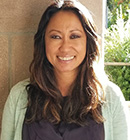 Claudia Frere-Anderson | Director, University of Washington Sustainability Claudia Frere-Anderson | Director, University of Washington Sustainability
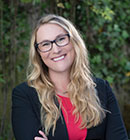 Kristen Connor | Senior Vice President & Community Impact Officer, Heritage Bank NW Kristen Connor | Senior Vice President & Community Impact Officer, Heritage Bank NW
|
| 10:30-11:00am |
Networking and Coffee Break
|
| 11:00am-12:15pm |
-
- Moderator: Kathy Lynn | Researcher, Environmental Studies Program, University of Oregon
- Katie Staton | Steward, Many Nations Longhouse, University of Oregon
- Haley Case-Scott | Resource Assistants Program Intern, USDA Forest Service

- Joe Scott | Lakwashti Tribal Arts and Education; Confederated Tribes of Siletz Indians; Curriculum Director, Long Tom Watershed Council's "TeamTEK"

|
-
Sponsored by:

- Introduction: Tom Robbins | Managing Princple, YGH Architecture
- Elissa Gordon | Program Manager, Office of Sustainability, Bellevue College

- Rick Glover | Environmental Science Faculty, Lane Community College
- Kim Smith | Sociology Instructor, Portland Community College

- Joao Vilca Soto | Student Club President, Cascadia College

- Stephan Classen | Assistant Director of Sustainable Practices, Cascadia College
|
-
- Owen Murphy | Associate Professor, Health and Human Performance, Central Oregon Community College
- Stephania Fregosi | Sustainability Analyst, Portland Community College
- Margaret Robertson | Author and Instructor, Lane Community College
- Heidi Sickert | Chair, Sustainability Practices for Academics and Resources Council (SPARC), Portland Community College
|
-
- Ilana Braverman | Program Manager, Better Food Foundation

- Meghan Jones | Seattle Director, Factory Farming Awareness Coalition
- Jill Smedstad | Environmental and Community Engagement Coordinator, Southern Oregon University

- Jamie Talarico | Student RFC Coordinator, Southern Oregon University
|
-
- Em Jones | Student Body President Cascade Campus, Portland Community College
- Riley Turner | Director of Eco-Social Justice, Portland Community College Cascade Campus
- Felipe Gonzalez | Director of Sustainability, Portland Community College Rock Creek Campus
- Kaden Carpenter | Director of Eco-Social Justice, Portland Community College Sylvania Campus
- Taylor Lohrie | Eco-Social Justice Director, Portland Community College Southeast Campus
|
| 12:15-1:15pm |
Lunch
|
| 12:15-3:15pm |
Career Development Corner
|
| 1:15-2:30pm |
-
- Kristi Straus | Lecturer and Associate Director, Program on the Environment, University of Washington
|
-
- Brandon Lesowske | Waste Management Coordinator, Portland State University - Campus Sustainability Office

- Minal Mistry | Business Initiatives Lead, Oregon DEQ
- Alex Thomas | Student, Gonzaga
|
-
- Briana Meier | Doctoral Candidate, Environmental Sciences, Studies, and Policy, University of Oregon
- Sarah Stapleton | Assistant Professor of Education Studies, University of Oregon
- Phillip Thompson | Professor of Civil and Environmental Engineering, Seattle University

|
-
- Colin Sexton | Engineer, NuScale

- Jesse Jenkins | Assistant Professor of Mechanical and Aerospace Engineering, Princeton University
- Daniel Kammen | Distinguished Professor of Energy, University of California, Berkeley

|
-
- Moderator: Hill Taylor | Chief Academic Officer (Academic Dean), American College of Healthcare Sciences
- Moderator: Susan Marcus | Dean of Business, American College of Healthcare Sciences
- Crystal Duey | Student, American College of Healthcare Sciences
- Jessica Goss | Student, American College of Healthcare Sciences
- Lindsay Little | Student, American College of Healthcare Sciences
|
| 2:30-2:45pm |
Break
|
| 2:45-4:00pm |
-
- Stephania Fregosi | Sustainability Analyst, Portland Community College
- Briar Schoon | Sustainability Manager, Portland Community College
- Resource: Equity Panel Recommendations (English)
- Resource: Equity Panel Recommendations (Spanish)
- Resource: Case Study
|
-
- Dr. Taylor McHolm | Program Director, Student Sustainability Center, University of Oregon

- Alice Morrison | Food Security Coordinator, Student Sustainability Center, University of Oregon
- Rachel Bayly | Food Pantry Community Outreach Coordinator, Western Oregon University

- Josh Salsbury | Food Pantry Campus Outreach Coordinator, Western Oregon University
- Lisette Cervantes Almonte | Food Pantry Supervisor, Western Oregon University
|
-
- Deanna Lloyd | Instructor, Oregon State University
- Jen Myers | Instructor, Sustainability Double Degree Program, Oregon State University
- Kim Townsend | Instructor, Oregon State University
- Erica Elliott | Sustainability Advisor, Oregon State University
|
-
Sponsored by:

- Introduction: Jon Kloor | Community Affairs Manager, NW Natural
- Vincent Smith | Associate Professor and Chair, Environmental Science & Policy, Southern Oregon University
- Seth Vidaña | Director of Sustainability, Western Washington University
- Emily Quinton | Sustainability Education and Outreach Coordinator, Portland State University
|
-
- Jaron Malcom | Undergraduate Student President, Net Impact, University of Oregon
- Zaida Hatfield | Cultural Sustainability Coordinator, Student Sustainability Center, University of Oregon
- Julia Olson | Waste Reduction Reusables Coordinator, Student Sustainability Center, University of Oregon
- Jim Wynne | Events and Restoration Coordinator, Student Sustainability Center, University of Oregon
- Brendan Adamczyk | Student Sustainability Network Chair, Student Sustainability Center, University of Oregon
|
| 4:00-4:15pm |
Break
|
| 4:15-5:15pm |
-
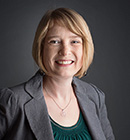 Moderator: Dr. Sarah Stoeckl | Program Manager, Office of Sustainability, University of Oregon Moderator: Dr. Sarah Stoeckl | Program Manager, Office of Sustainability, University of Oregon
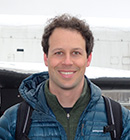 McKenzie Funk | Journalist and Author, Windfall: The Booming Business of Global Warming McKenzie Funk | Journalist and Author, Windfall: The Booming Business of Global Warming
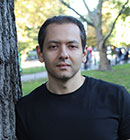 Omar El Akkad | Author, American War Omar El Akkad | Author, American War
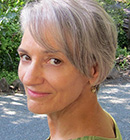 Rebecca Lawton | Author, Scientist and Executive Director, PLAYA Summer Lake Rebecca Lawton | Author, Scientist and Executive Director, PLAYA Summer Lake
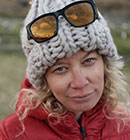 Dr. M Jackson | Author, The Secret Lives of Glaciers Dr. M Jackson | Author, The Secret Lives of Glaciers
|
| 5:15-5:30pm |
Juliana v. United States Update 
Alex Loznak | Youth Climate Activist, Our Children's Trust; Plaintiff, Juliana v. United States
|
| 5:30-5:45pm |
Mind the Gap | UO A Cappella
|
| 5:30-6:30pm |
Networking Reception
Exhibitor Passport drawing at 6pm. Must be present to win one of the following:
- Aroma Therapy Gift Basket provided by American College of Healthcare Sciences
- GB500 handheld blower w/ 2-2.5ah batteries and a rapid charger provided by Greenworks Tools
- 3 free online courses on Social Intrapreneurship provided by the League of Intrapreneurs
|
| 5:30-6:30pm |
-
|
|
Diversity, Equity & Inclusion
EMU Ballroom Main Stage |
Engagement
EMU 145 | Crater Lake South |
Academics
EMU 231 + 232 | Cedar + Spruce |
Operations & Facilities
EMU 214 | Redwood Auditorium |
Student Leadership
EMU 146 | Crater Lake North |
| 7:30-8:30am |
Yoga | Rec Center 1320 E 15th Ave, Studio 283
- Led by: Alesha Delaney | Marketing & Communications Specialist, Campus Sustainability Office, PSU
|
| 8:00am |
Breakfast & Registration
|
| 8:00-9:00am |
-
|
-
- Host: Emily Quinton | Sustainability Education and Outreach Coordinator, Portland State University
|
-
- Host: Hope Peterson | Zero Waste Coordinator, Western Washington University
- Host: Mabel Miller | Sustainability Representatives Program Coordinator, Western Washington University
|
-
|
-
- Host: Daman Thys Reynolds | Sustainability Chair, Associated Students of Whitman College
|
| 9:00-9:05am |
- Welcome to WOHESC Day 2
|
| 9:05-9:15am |
- Welcome Remarks
- Dr. Yvette Alex-Assensoh | Vice President for Equity and Inclusion, University of Oregon
|
| 9:15-9:30am |
- Opening Keynote

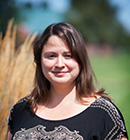 Dr. Jessica Black | Director, Center for Indigenous Health, Culture and the Environment, and Associate Professor of Environmental Science, Heritage University Dr. Jessica Black | Director, Center for Indigenous Health, Culture and the Environment, and Associate Professor of Environmental Science, Heritage University
|
| 9:30-10:30am |
-
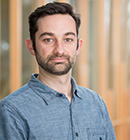 Moderator: Dr. Taylor McHolm | Program Director, Student Sustainability Center, University of Oregon Moderator: Dr. Taylor McHolm | Program Director, Student Sustainability Center, University of Oregon
 Dr. Jessica Black | Director, Center for Indigenous Health, Culture and the Environment, and Associate Professor of Environmental Science, Heritage University Dr. Jessica Black | Director, Center for Indigenous Health, Culture and the Environment, and Associate Professor of Environmental Science, Heritage University
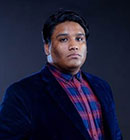 Joel Iboa | Coalition Manager, Causa Oregon Joel Iboa | Coalition Manager, Causa Oregon
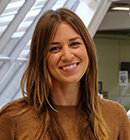 Amelia Pape | Adjunct Instructor of Management, Portland State University Amelia Pape | Adjunct Instructor of Management, Portland State University
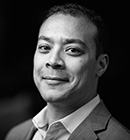 Sean Watts | Owner, SM Watts Consulting Sean Watts | Owner, SM Watts Consulting
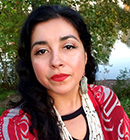 Luhui Whitebear | PhD Candidate, Assistant Director, NAL Eena Haws, Diversity & Cultural Engagement, Oregon State University Luhui Whitebear | PhD Candidate, Assistant Director, NAL Eena Haws, Diversity & Cultural Engagement, Oregon State University
|
| 10:30-11:00am |
Networking and Coffee Break
|
| 11:00am-12:15pm |
-
|
-
- Joe Abraham | Sustainability Director, Willamette University
- Izabel Loinaz | Director, Center for Sustainable Business Practices, University of Oregon
- Ryan Cabinte | MBA Program Manager, Center for Sustainable Business Practices, University of Oregon
- Bobby Butler | Program Manager/Instructor, Sustainable Agriculture Program, Highline College

|
-
- Megan Banks | Program Director, University of Oregon
- Joshua Skov | Instructor, Lundquist College of Business, University of Oregon
- Marc Schlossberg | Professor and SCI Co-director, University of Oregon
- Rebecca Lewis | Associate Professor, Co-director of Research, IPRE, University of Oregon
|
-
Sponsored by:

- Lisa Petterson | Principal, SRG Partnership, Inc.
- Jarrod Penttila | Project Manager, Oregon State University - Cascades
- William Silva | Director of Preconstruction, Swinerton Builders
- Lyle Keck | Building Performance Consultant, Affiliated Engineers, Inc.
- Eric Ridenour | Campus Planner, SRG Partnership, Inc.
|
-
- Lucas Gutterman | Organizing Director, OSPIRG Students, University of Oregon
- Nicole Walter | Campus Organizer, WASHPIRG Students, University of Washington
- Elizabeth Radcliffe | Board Chair, OSPIRG Students, University of Oregon
- Abby Keep | Chapter Secretary, OSPIRG Students University of Oregon
|
| 12:15-1:15pm |
Lunch
|
| 1:15-2:30pm |
-
- Mark Nystrom | Climate and Materials Management Program Manager, Lane County

- Alai Reyes-Santos | Professor, University of Oregon

- Luis Pablo Alvarez | Environmental Justice Community Organizer, Beyond Toxics and Eugene/Springfield NAACP
|
-
- Brandon Trelstad | Sustainability Officer, Oregon State University

- Amira Smith | Marketing and Outreach, Sustainability Office, Oregon State University
- Toren Elste | Program Specialist, University of Washington Sustainability

|
-
- Wm. Andrew Schwartz | Executive Director, Center for Process Studies and Assistant Professor of Process Studies and Comparative Theology, Claremont School of Theology
- Philip Clayton | President, Institute for Ecological Civilization
- Barbara Muraca | Assistant Professor of Philosophy and Environmental Studies, University of Oregon
|
-
Sponsored by:
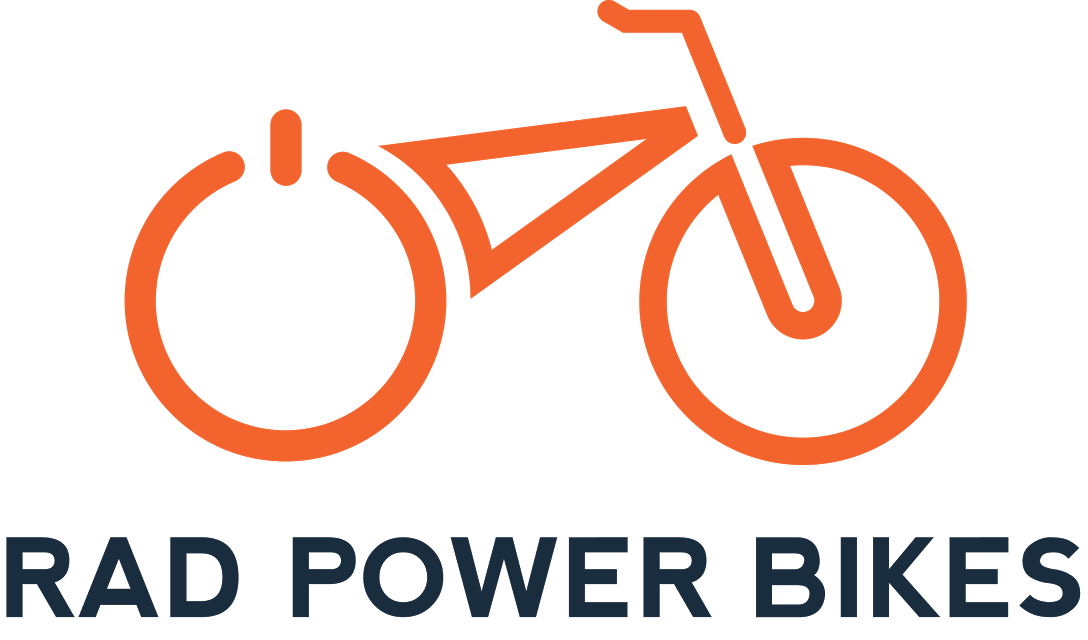
- David Reesor | Director of Transportation Services, University of Oregon

- Rob Inerfeld | Transportation Planning Manager, City of Eugene

- Kelsey Moore | Bike Program Coordinator, University of Oregon

- Colin Quinn-Hurst | Pedestrian and Bicycle Planner, City of Spokane

|
-
- Claire Verstrate | Student, Students for Sustainability Lead Coordinator, Willamette University

- Lauren Collar | Student, Students for Sustainability Engagement Coordinator, Willamette University
- Marion Powell | Student, Students for Sustainability Composting and Zero Waste Coordinator, Willamette University
- Sam Kinzel | Student, Campus Student Spiritual Advisor and Member of the Student Government Sustainability Committee, Whitman College
|
| 2:30-2:45pm |
Break
|
| 2:45-3:00pm |
-
|

 Terry McDonald | Executive Director, St. Vincent DePaul Society of Lane County
Terry McDonald | Executive Director, St. Vincent DePaul Society of Lane County 
 Moderator: Seth Vidaña | Director of Sustainability, Western Washington University
Moderator: Seth Vidaña | Director of Sustainability, Western Washington University
 Michele Crim | Chief Sustainability Officer, City of Portland
Michele Crim | Chief Sustainability Officer, City of Portland
 Claudia Frere-Anderson | Director, University of Washington Sustainability
Claudia Frere-Anderson | Director, University of Washington Sustainability
 Kristen Connor | Senior Vice President & Community Impact Officer, Heritage Bank NW
Kristen Connor | Senior Vice President & Community Impact Officer, Heritage Bank NW
 Moderator: Dr. Sarah Stoeckl | Program Manager, Office of Sustainability, University of Oregon
Moderator: Dr. Sarah Stoeckl | Program Manager, Office of Sustainability, University of Oregon
 McKenzie Funk | Journalist and Author, Windfall: The Booming Business of Global Warming
McKenzie Funk | Journalist and Author, Windfall: The Booming Business of Global Warming
 Omar El Akkad | Author, American War
Omar El Akkad | Author, American War
 Rebecca Lawton | Author, Scientist and Executive Director, PLAYA Summer Lake
Rebecca Lawton | Author, Scientist and Executive Director, PLAYA Summer Lake
 Dr. M Jackson | Author, The Secret Lives of Glaciers
Dr. M Jackson | Author, The Secret Lives of Glaciers
 Dr. Jessica Black | Director, Center for Indigenous Health, Culture and the Environment, and Associate Professor of Environmental Science, Heritage University
Dr. Jessica Black | Director, Center for Indigenous Health, Culture and the Environment, and Associate Professor of Environmental Science, Heritage University
 Moderator: Dr. Taylor McHolm | Program Director, Student Sustainability Center, University of Oregon
Moderator: Dr. Taylor McHolm | Program Director, Student Sustainability Center, University of Oregon
 Dr. Jessica Black | Director, Center for Indigenous Health, Culture and the Environment, and Associate Professor of Environmental Science, Heritage University
Dr. Jessica Black | Director, Center for Indigenous Health, Culture and the Environment, and Associate Professor of Environmental Science, Heritage University
 Joel Iboa | Coalition Manager, Causa Oregon
Joel Iboa | Coalition Manager, Causa Oregon
 Amelia Pape | Adjunct Instructor of Management, Portland State University
Amelia Pape | Adjunct Instructor of Management, Portland State University
 Sean Watts | Owner, SM Watts Consulting
Sean Watts | Owner, SM Watts Consulting
 Luhui Whitebear | PhD Candidate, Assistant Director, NAL Eena Haws, Diversity & Cultural Engagement, Oregon State University
Luhui Whitebear | PhD Candidate, Assistant Director, NAL Eena Haws, Diversity & Cultural Engagement, Oregon State University
 © 2026 | Event by Social Enterprises, Inc.
© 2026 | Event by Social Enterprises, Inc.



